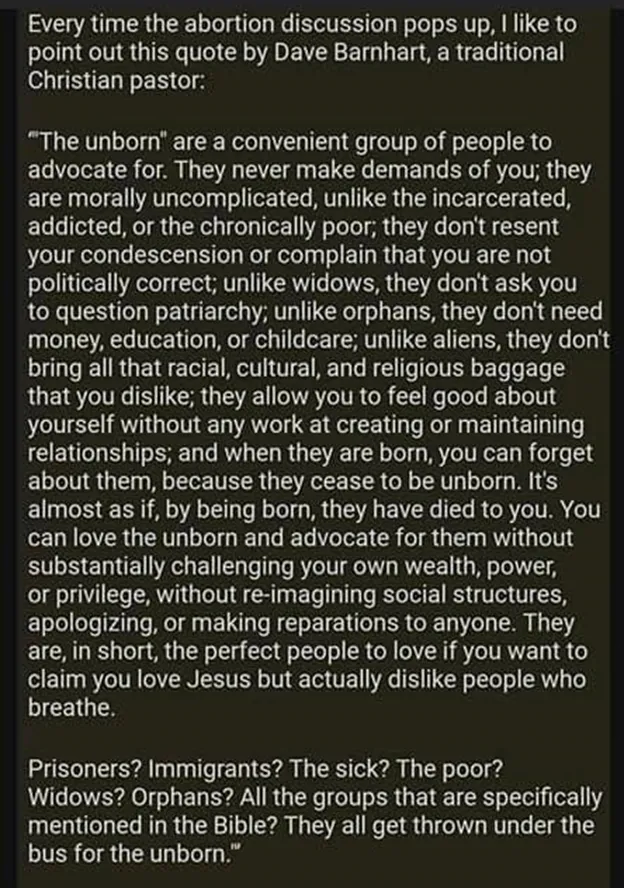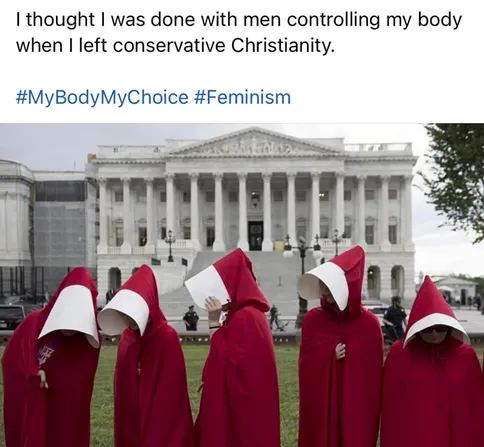The Grammy’s have long been a cultural symbol of transgression. The goal of the Grammy’s used to be to celebrate the best music artists in the world. It was an awards night. Or, at least, it used to be.
They have always been edgy and culturally progressive. For instance, in 1973 Helen Reddy thanked God for her award but referred to God as “she” while doing so.[i] The secular entertainment industry lends itself to this sort of subversive rhetoric.
But recently the Grammy’s have become more than a shocking cultural display while recognizing the best secular artists of the day. Long before 2023’s shocking performance by Sam Smith and Kim Petras[ii], they had shifted from shocking and transgressive to lewd and Satanic.
This is not a conspiratorial statement. You will hear no talk of Illuminati, MK Ultra, or Demon possession here, but what the Grammy’s has become, whether the people who are involved realize it or not, is a worship service to deeds of darkness and even Satan himself. This slide may have been overtly realized in 2023, but elements of Satanic worship have made their way into the Grammy’s for decades.
First, I want to explain what I mean by Satanic. I do not mean Occult, or the literal worship of Satan. There were, as far as I am aware, no literal virgin sacrifices or summoning of demons on February 5th. What I do mean is an unwitting plunge into the darkness of which the performers, actors, and producers are barely aware. As they dance in overtly Satanic gear they think they are shedding light on darkness through mockery, but they accomplish the opposite and open themselves up to demonic influence in the process.
Judge less, love more, they say,[iii] but love means affirmation in this realm. Reality pushes pack, love cannot affirm untruth.[iv]
I don't know who needs to hear this… But the Grammy's has been home to satanic rituals for years now, they're just bolder now.
— J.R. Klein (@JoshRKlein) February 7, 2023
The best trick Satan ever pulled was convincing the culture that he either does not exist or that following his ideals leads to power and pleasure without limits. Satan’s goal is not to be worshipped. He is not interested in that. His goal is simply to stop the worship of the one true God and destroy what is good. It could look overt, like it did on February 5th, or, more often, it looks normal – the choice to commit to a sport over church, the choice to pursue a career at the expense of your marriage. Satan was once an angel of light, he understands how to deceive, but once the culture has bought the covert deceptions he will move in for the kill.
In John 10:10 Jesus gives us a behind the scenes look at Satan’s goals. He comes only to steal, kill, and destroy. A performance need not be invoking Satanic worship or summoning Demons to be considered a Satanic ritual – it need only be a full embrace of darkness, theft of light, death of good, and destruction of holiness.
Sam Smith’s performance accomplished all three in a single song. He declares darkness light, he mocks God’s created order (declaring himself as non-binary, and his co-performer is transgender), and he destroys holiness with a full-on plunge into radical self-autonomy and pleasure. The song he performs is literally entitled Unholy. It glorifies infidelity and promiscuity.
Once we recognize that Satanism, according to its forefathers Aleister Crowley and Anton Lavey, is not merely the worship of Satan, but first and foremost the worship of self we can begin to understand the influence it has had on the entertainment industry.
Perhaps another time we can do a deep dive into the history of both Crowley and Lavey, but suffice it to say that the modern Satanic movements are built on their ideology. Crowley was a much more religious figure than Lavey. Lavey[v] sought to popularize Satanism by tying it to an atheistic framework, Crowley[vi], on the other hand, bought into the spiritual realm. One strand of thought that extending from Crowley to influence the Laveyan popularization[vii] of Satanism, however, was a quote from Crowley himself, “Do What Thou Wilt.”[viii]
Lavey would often scoff at the idea that his group worshiped a literal Satan (as would Crowley to some degree) but that the Church of Satan stood for what Satan symbolized in Paradise Lost. A 17th century poem by John Milton[ix]. Radical self-autonomy, including the ability to choose what is right and wrong rather than simply to recognize the difference between right and wrong, stood at the heart of Laveyan Satanism.
The irony of the Satanic church is, while their Satanic worship is supposedly tongue-in-cheek, their worship of self and desire to choose for themselves what is right and wrong is, in fact, the very same thing Satan used in the garden to entice Eve. In essence, they worship the literal Satan without even realizing that is what they are doing, and Satan would have it no other way.
So, what does this have to do with the Grammy’s?
Within the backdrop of this form of Satanism we find the rise of the modern entertainment industry. The worship of self-gratification and self-actualization transgresses the Christian belief of self-sacrifice and holy living (Matthew 16; Rom. 12, Col. 3:5-10). Whether intentional or not, the worship of self leads to deeds of darkness and the glorification thereof.
One need not perform a literal Black Mass to worship the Devil. Simply look in the mirror and whisper, “I am a god.”
The Grammy’s, in that sense, have been a bastion of Satanic ritual for decades. Hedonism, Paganism, and Satanism are mostly all sides of the same coin and rewards season in Hollywood, specifically the Grammy’s, has become a once-a-year ritual of worship that slips from naturalism to hedonism to Satanism in the blink of an eye.
But don’t take my word for it, CBS allegedly tweeted as much before the Grammy’s:
Gotta love @CBS openly admitting that they, alongside Sam Smith, "WORSHIP" (their words, not mine) the devil… #GRAMMYs pic.twitter.com/IDtb7O5ruX
— Shawn Farash (@Shawn_Farash) February 6, 2023
How quickly we forget that the last ten years have seen a steady increase of Satanic boldness at the Grammy’s. Smith’s performance was not new or edgy, it was simply more in a pattern of self-worship from the power brokers of the entertainment industry.
In 2012, Nicki Manaj performed a mock exorcism on stage[x]. The Washington Post was shocked. But the Post lauded Smith and Petras’ performance of Unholy only a decade later[xi] as one of the top four performances of the night.
In 2014, Katy Perry performed an enigmatic and dark song called Dark Horse. In the song she emerged from a crystal ball with shadowy figures summoning her to a black altar when a red cross appeared on her chest, she danced with a broom and ended the performance being burnt at the stake.[xii] Seemed a bit on the nose at the time, but 2023 takes the cake in that regard. This same year the Grammy’s held a mass “wedding ceremony” for gay couples as well, explicitly mocking a church service in the process[xiii].
In 2015, Madonna (who also introduced Smith in 2023) performed a song called Living for Love with background dancers clad in demonic garb[xiv].
In 2017, A pregnant Beyoncé performed what looked like an ode to her goddess-self giving birth to a child. But, again, you do not have to take my word for it[xv].
In 2019, a metal band called Ghost won a Grammy. The band is known for its Satanic imagery. Its lead man often dons clothing associated with the Occult and riddled with references to Satan, darkness, upside down crosses and demonic imagery[xvi]. Leading man Tobias Forge says this of their message:
“I think it’s sad that people are wasting their time thinking that we’re bad for people, when actually what we’re really trying to do is make people happy and make people feel good about themselves when they come to our show and have a good time.”
Do what thou wilt, one might say.
2021 and 2022 had similarly eerie performances, one by Post Malone[xvii] in which he was surrounded by darkly hooded monks as he wrestled with the hopelessness he felt in Hollywood’s grips and one by Lil Nas X who performed his song Montero that featured a lap dance on the devil in the music video.
These odes to darkness are not outright Wiccan ritual or Occult sacrifices, but they can often stand in for something just as insidious and more subversive. The point is the destruction of norms, reclaiming of a new morality, and recasting of darkness disguised as light. Make no mistake – the Devil smiles at such displays, not because he is worshipped but because that which is being worshipped is not, in fact, the one true God.
This brings us to the most recent spectacle. At the 2023 Grammy’s, self-proclaimed non-binary performer Sam Smith and transgender performer Kim Petras combined to present the most brazen tribute to modern day Satanism to date, with their presentation of the song Unholy.
Kim (born Tim), a transgender woman who had gender reassignment surgery at the age of 16[xviii] writhed around in a cage guarded by demonic strippers while Sam Smith gyrated with and performed with transgender strippers dressed in demonic costumes. The whole display lacked subtlety and imagination. You were seeing, in full display, a desire to embrace darkness for the very fact that reality is offensive to our fleshly desires. We can make our own reality, where gender is a matter of opinion and sexes can change through the miracle of modern medicine. We can choose for ourselves what is good and what is evil and be damned if you disagree.
Petras had this to say about the performance:
“I think a lot of people, honestly, have kind of labeled what I stand for and what Sam stands for as religiously not cool, and I personally grew up wondering about religion and wanting to be a part of it but slowly realizing it didn’t want me to be a part of it… So it’s a take on not being able to choose religion. And not being able to live the way that people might want you to live, because as a trans person I’m already not kind of wanted in religion. So we were doing a take on that and I was kind of hell-keeper Kim.”[xix]
There is a lot to break down in this quote. It gives a glimpse into the slippery slope from individual autonomy to the embrace of evil itself. At first glance one might empathize with the apparent ostracization of Petras, but the admission here is not that religion would not have him, it is that he would not have religion. Whatever god Petras would willingly serve must first bend the knee at his own self-actualization.
The Christian life, though, is about dying to self and rising with Christ, remade, a new creation (Matt. 16:24-26, Rom 12:1-3; 1 Cor. 6:19-20) and being transformed into obedience to truth which is Jesus himself. The problem was not that Kim could not choose religion, it is that religion, Christianity in particular, required a change in identity for Kim. It meant not looking inward for validation hope, or truth but looking upward.
Ironically, Kim’s own performance shows the truth of his commitment, the self-actualization into radical autonomy left him writhing in a cage, unfree, trapped in Hell. What promises as freedom is bondage but what looks like constraint is freedom (John 8:32; 10:10). Had Kim or Sam chosen Jesus they might find that they would not need to seek applause and shock to remain relevant, whole and fulfilled. Our culture’s promise that sexual pleasure is the highest pursuit, and victimhood the highest virtue only leads to hopelessness and irrelevance.
Is it worth it in the long run?
“Age does not matter to me… I’m never going to stop fully clubbing and loving gay clubs and going to them. That’s just who I am.”[xx]
Kim Petras
But what about when age does matter? What about when the fame fades? What then?
If the Enemy can keep us focused on the here and now rather than the there and then he has won half the battle. This game is endless, exhausting, and boring all at the same time. Always having to look for the next shocking display, the next transgressive cause to burn down the norms of history. It seems like a high calling because of the cultural plaudits, but it is meaningless and empty of value. There’s a reason Madonna, at 64, can’t let go of her 1980s self and must always insert herself into these moments.
The culture of transgression is fleeting, being a sex symbol only lasts for a few years before you are cast aside for the next and hottest new thing. The worship of self, pleasure, and identity only gives meaning for a short time, but it is long enough to waste a lifetime. Satan knows this and his desire to amplify this meaningless self-worship has eternal consequences.
So, what is the Christian’s response to things like this?
First, I believe our role is to expose the darkness for what it is (John 1:5) and to avoid loving what it stands for (1 John 2:15) but we must also pray for those that are mired in it to be exposed to the light. May they find true hope, peace, and purpose. I do not hate Sam Smith or Kim Petras, on the contrary, I love them deeply. I want them to know and understand the deep and abiding love that Christ has for them. I want them to experience a rest from their pursuit of relevance, acceptance, fame, and pleasure.
Our goal should be similar to what Jesus revealed to Paul as he was sent among the hedonistic and pagan nations of the gentiles:
“…To open their eyes and turn them from darkness to light, from the power of Satan to God, so that they may receive forgiveness of sins and a place among those who are sanctified by faith in me (Acts:26:18).”
We must recognize, as Paul did, that the world is, whether they realize it or not, under the power of Satan. This sort of darkness, this worship of self, certainly opens individuals and cultures up to the influence of the spiritual realm. Satan is the prince of this world (Eph. 2:1-2) and they serve him whether they realize it or not. The enemy, however, is not Sam Smith or Kim Petras but the dark and spiritual forces of evil in the heavenly realms (Eph. 6:12).
We cannot be naïve about these things, but we also must not overreact out of fear either. We must be sober-minded and watchful (1 Peter 5:8) prepared to engage with the boldness of love and truth.
In the end though, we must remember that Satan’s greatest weapon against the church is not a dark cultural display at the Grammy’s but in false gospels, fear, and ineffectiveness. So while we ought to be aware of these things, we should be more concerned about our own churches, neighborhoods, and Bible studies lest we get distracted by things like the Grammy’s at the expense of real and true discipleship.
Footnotes
[i] https://www.insider.com/most-shocking-moments-grammys-history#long-before-ariana-grande-sang-god-is-a-woman-helen-reddy-made-that-proclamation-during-her-1973-acceptance-speech-1
[ii] https://variety.com/2023/music/news/sam-smith-kim-petras-unholy-grammys-1235510990/
[iii] https://www.billboard.com/music/awards/kim-petras-2023-grammys-judge-less-speech-1235213820/
[iv] https://freethinkingministries.com/of-truth-and-empathy/
[v] https://www.britannica.com/biography/Anton-LaVey
[vi] Aleister-Crowley-s-Satanism.pdf
[vii] https://www.history.com/topics/1960s/satanism
[viii] https://www.goodreads.com/book/show/123653.The_Book_of_the_Law
[ix] https://www.britannica.com/topic/Paradise-Lost-epic-poem-by-Milton
[x] https://www.washingtonpost.com/blogs/click-track/post/grammys-2012-the-last-exorcism-of-nicki-minaj-what-went-wrong-and-what-almost-went-right/2012/02/13/gIQAzAxMBR_blog.html
[xi] https://www.washingtonpost.com/arts-entertainment/2023/02/05/grammy-awards/
[xii] https://youtu.be/jDuL_3TsdZE
[xiii] https://variety.com/2014/music/news/madonna-marries-gay-couples-at-the-grammys-2-1201072143/
[xiv] https://www.salon.com/2015/02/09/see_madonnas_demonic_grammy_performance_of_living_for_love/
[xv] https://www.self.com/story/beyonce-grammys-2017
[xvi] https://www.yahoo.com/entertainment/grammy-nominated-metal-band-ghost-addresses-satanic-accusations-music-styles-promote-way-worse-lifestyle-175537647.html
[xvii] https://www.youtube.com/watch?v=nNBDjJosK74
[xviii] https://www.thesun.co.uk/tvandshowbiz/9832006/kim-petras-transition-clarity-fame/
[xix] https://variety.com/2023/music/news/ted-cruz-slams-sam-smith-kim-petras-grammys-evil-performance-1235514438/
[xx] https://abcnews.go.com/Entertainment/wireStory/kim-petras-talks-religion-trans-community-ahead-grammys-96847838
Recommended resources related to the topic:
Defending Absolutes in a Relativistic World (Mp3) by Frank Turek
Is Morality Absolute or Relative? (Mp3), (Mp4), and (DVD) by Frank Turek
____________________________________________________________________________________________________________________________________________________
Josh Klein is a Pastor from Omaha, Nebraska with over a decade of ministry experience. He graduated with an MDiv from Sioux Falls Seminary and spends his spare time reading and engaging with current and past theological and cultural issues. He has been married for 12 years to Sharalee Klein and they have three young children.
Original Blog Source: https://bit.ly/3S1lyMc

















